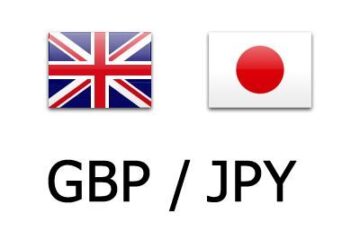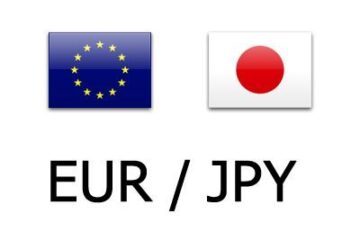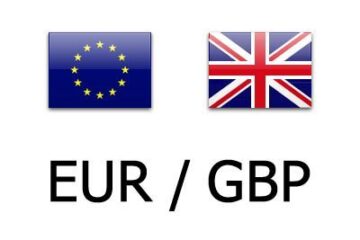If there is one thing that those with the means to buy luxury products love to do, it’s that they love to leave their mark on the things they own.
Parisian fashion ateliers Louis Vuitton and Goyard offer their buyers the opportunity to add a hand-painted monogram to their items—essentially a hand-painted effigy of their initials on leather goods and luggage in any color, font, or size they like.
Similarly, it is not uncommon to see shirtmakers from Brooks Brothers to Eton offer their customers the opportunity to add their initials to their white shirts in various fonts and colored threads.
Cars are no different. To offer its buyers an extra ounce of distinction, Italian luxury automaker Ferrari (RACE) has two different in-house customization programs called “Atelier” and “Tailor Made,” which allow owners to go absolutely buck wild when it comes to designing the sports car of their dreams.
However, Ferrari is notorious for denying, discouraging, and not allowing customers to let their inner creative wings flap, a move some see as snobbery.
Maserati: a refuge for “questionable” taste
According to The Drive, Ferrari’s regional rival, the Stellantis-owned (STLA) Maserati, is rolling out the red carpet for wealthy customers with tastes deemed too weird or too flashy for Ferrari.
Maserati has recently introduced a new in-house customization program called the “Officine Fuoriserie Maserati,” which literally means “Office Out of Series Maserati.” Like Ferrari’s “Atelier” and “Tailor Made” programs, it aims to offer customers an additional layer of customization.
Unlike Ferrari, Maserati execs in charge of the program made it clear that pretty much anything is on the table unless it makes the vehicle unsafe or becomes a quality control issue.
“The decision to proceed or not with a customer’s request will be based on considering safety, and secondly, quality,” Maserati Fuoriseries global head Davide Baldini told The Drive. “If we are doing a study and we are sure that the quality of an interior material or finish will be OK for the customer and we will not have an issue in the future, we can go ahead. Otherwise, we cannot. Our process is to protect the customer, the customer experience, and the customer investment.”
A Maserati MC20 ‘Opera d’Arte,’ made by Officine Fuoriserie Maserati
Maserati
Cars built under the Fuoriserie program are built in a special corner in Maserati’s factory in Modena by its most experienced workers. The program is available for all variations of Maserati’s MC20 supercar, the Gran Turismo four-seat grand tourer, and the Grecale SUV.
Two different programs give buyers two different levels of customization. The first, Catalogue, allows Maserati customers to dive into the brand’s “catalogs,” consisting of thousands of paint colors, interior materials, and other touches that make their cars unique in their own special way.
Meanwhile, Maserati describes the Bespoke program as “the pinnacle of tailoring,” where “the experience becomes unique and creativity knows no limits.”
“It is the freedom to bring the customer’s vision to life in a completely unique way, forging an exclusive relationship between Maserati’s creative department and the cars’ owners to configure an exclusive model,” Maserati said in a statement.
As one can imagine, the Bespoke level of Maserati’s Fuoriserie program is where customers can truly go wild with what they want. According to Klaus Busse, Maserati’s global head of design, they have even made a pink Maserati for a customer—something extraordinarily taboo for Ferrari.
In his eyes, the only defined limits for customers apart from the addition of legally or ethically questionable materials is if he feels the customer is acting against their best interests.
“Our job is really to show our clients empathy and understanding through the design process, to deliver what they desire and go through that journey with him or her,” he said. “Along that journey is to make sure—not so much that Maserati is protected—but that the customer is protected. We make sure that they don’t choose something they will regret three months or three years down the road. It’s a lot of curation and a lot of advice.”
Related: Ferrari’s CEO is getting sick of his customers’ bad taste
Customization is a serious business
Maserati’s entrance into the bespoke game comes as the elite spend more than ever. At Ferrari, the “personalization” business accounts for a large portion of its earnings.
In 2024, Ferrari sold just 13,752 vehicles but grossed around €1.3 billion ($1.35 billion) from personalization last year, accounting for about a fifth of overall revenues at the prancing horse.
However, Ferrari’s higher-ups have indicated that opening up Pandora’s box has tarnished its brand image. Recently, CEO Benedetto Vigna noted that he wanted to police its customers’ more “garish” color choices and compared the “diminished appeal of an overly personalized car” to a soccer jersey with someone else’s name on the back.
“We have been thinking internally maybe to pre-define the [color] combinations,” Vigna told The Telegraph. “We have to pay attention because we have to defend the values and the identity of the brand. We will not make a strange car, for sure.”
More Automotive:
The most reliable new hybrids in 2025New car buyers are in for good news about inflated pricesBMW’s newest Mini Cooper is a cool car for buyers on a budget
Other prestigious brands are seeing the value in personalization and customization and are making investments to do so.
For instance, BMW-owned Rolls Royce announced in January 2024 that it invested £300 million ($376 million) in its U.K. Goodwood factory. The factory will focus on “bespoke” models, which can add hundreds of thousands to sticker prices already well above mid-six figures.
In a recent interview by German business publication Manager Magazin, Rolls Royce CEO Chris Brownridge was asked if allowing a certain level of customization made Rolls Royce walk “a fine line” when coming to grips with “good taste.” He shot down the suggestion.
“I don’t see any risk there and we are not the taste police. Every Rolls-Royce is individually tailored to the customer’s wishes. If you prefer a dark car with an understated design, you can have that,” he said.
Related: Veteran fund manager issues dire S&P 500 warning for 2025


